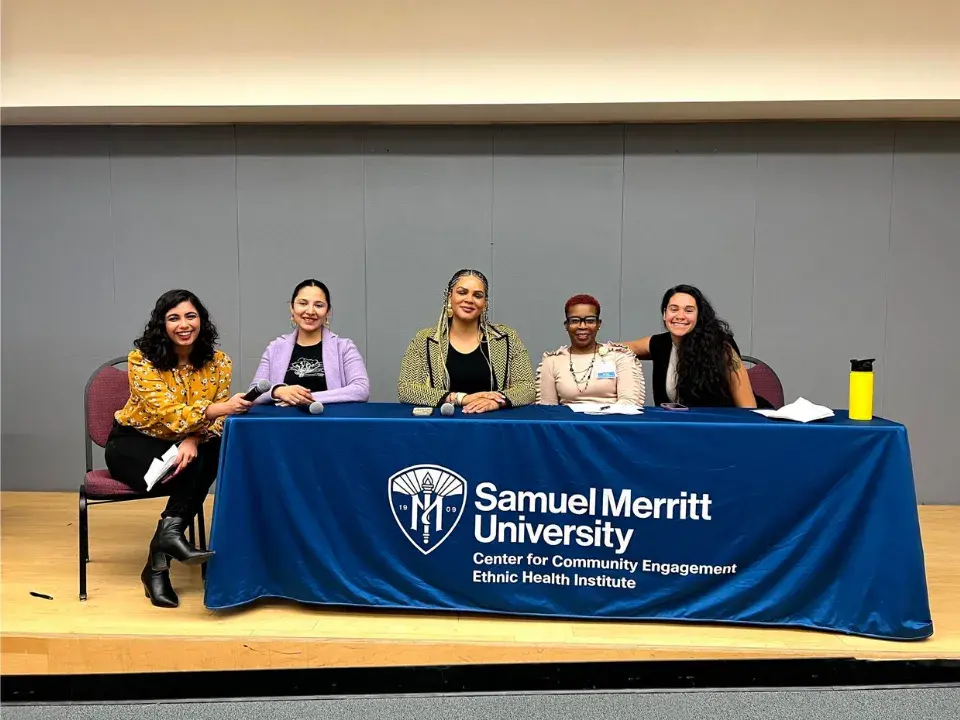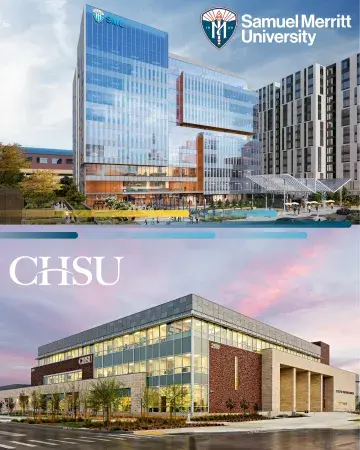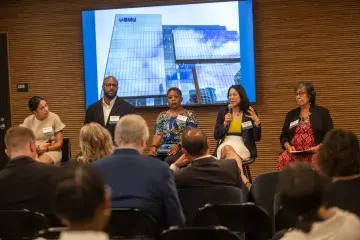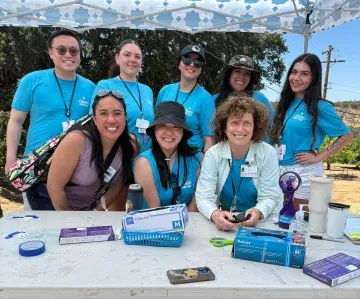SMU's Ethnic Health Institute Receives $500,000 to Expand Human Trafficking Initiative

Samuel Merritt University’s Ethnic Health Institute (EHI), which is housed under the Center for Community Engagement, strives to be at the forefront of health equity education and practice. As the issue of human trafficking becomes a more prominent and urgent topic of conversation among community health practitioners and leaders, EHI has taken critical steps to position SMU as a leader in this work.
This fall, Oakland Mayor Sheng Thao launched a human trafficking advisory council amid calls from local experts and industry leaders for a declaration of state of emergency around trafficking. Studies have shown that up to 88% of victims of trafficking interact with healthcare institutions while they’re being trafficked. Yet, when surveyed, healthcare workers often lack the knowledge and resources to effectively support survivors in these settings.
In 2022 EHI launched an initiative in collaboration with SMU’s College of Nursing to educate healthcare workers on how to recognize signs of trafficking in a clinical setting and provide trauma-informed care to survivors. Since this effort began, almost 300 students, faculty, and community members have been trained on this topic.
Last month, EHI received a $500,000 grant from the United States Department of Justice to expand its efforts in combatting trafficking. These funds will be utilized to enhance the existing training curriculum, including the development of a simulation activity focused on trafficking.
“Utilizing SMU’s state-of-the-art Health Sciences Simulation Center for the implementation of a simulation component to our trafficking training will provide healthcare workers with a safe and contained environment to practice what they’ve learned,” says Monica Uriarte, Director of Corporate and Foundation Relations.
Moreover, the grant will allow EHI to bring together campus and community leaders to eliminate barriers survivors of trafficking face when interacting with both healthcare institutions and institutions of higher education. This work will be done in partnership with MISSSEY, a local survivor-led nonprofit organization supporting youth who have been impacted by trafficking.


